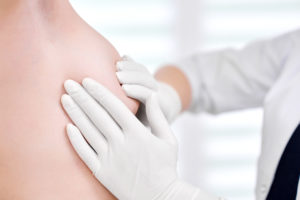If you ever wondered if ultrasound gel has some harmful effects or if you can be allergic to an ultrasound gel, then you just might be about to get an answer. Usually, ultrasound waves have a tough time traveling through air and this can become a problem if you are looking to create clear images of the tissue or organ involved. To make sure your physician gets the best images, ultrasound gels are used, they are some sort of medium that connects the skin and the ultrasound transducer.
So, the next time you cringe when the ultrasound gel touches your skin, just take a deep breath and understand that it’s all for your good – what’s the point of an ultrasound procedure without excellent results?
Ingredients in Ultrasound Gel
Have you ever paused a second to think of what the components of ultrasound gel could be? You must have asked yourself why it is so sticky or why it is so cold. True, ultrasound gels are more than just any kind of gels, they are specially made gels. Here are a few of the ingredients in Ultrasound Gels:
- Water: Ultrasound gels are made mostly of water. Like you know already, water is harmless, and a good solvent.
- Propylene Glycol: It is often found in cosmetic products and food. It is also found in some hygiene products. It is responsible for some of the few adverse skin reactions to ultrasound gel.
- Glycerin: Glycerin is a natural moisturizer that can also be found in our skin. It helps to make the gel feel better on the skin. Glycerin is used in several skincare products.
- Isothiazolinones: It is used as a preservative in ultrasound gels and can also be found in products like cosmetics and paints. It is also responsible for some allergic reactions from the use of ultrasound gel.
There are many more ingredients that can be used to make ultrasound gel – they vary at times. The three ingredients listed above are the main components of ultrasound gel.
Can you Be Allergic to Ultrasound Gel?
Skin reactions to ultrasound gel are uncommon. You may react badly to ultrasound gel if you are allergic to one or more of its ingredients.
Propylene glycol allergy is the most common cause of adverse skin reactions to ultrasound gel. Propylene glycol is well-known for causing mild skin irritation and allergic skin reactions in some people. Before going in for an ultrasound test, check to see if you are allergic to propylene glycol and inform your doctor early.
Isothiazolinones is another ingredient in ultrasound gel that causes allergic contact dermatitis (skin rash caused by contact with certain substances). There are also other components in ultrasound gels that you can find you are allergic to. Should you find that you have an allergy to any other ingredient used in ultrasound gels, communicate this to your doctor early.
Alternatives to Ultrasound Gel If You’re Allergic
If you found that your present ultrasound gel contains an ingredient you struggle with, the next best thing to do is to find an alternative.
Sonographers have used several alternatives to ultrasound gel over the years. Although not as effective as ultrasound gel, they perform nearly well and still help to produce clear results. Some of the alternatives to ultrasound gel include mineral oil, lotion, vaseline, aloe vera, and others. Many substitutes, on the other hand, are not allowed for use and may be detrimental to the probe.
Informing your doctor of any allergic reactions you have to ultrasound gel is the wisest thing to do before you have an ultrasound procedure. Rather than cross your fingers during your ultrasound procedure or wish on a shooting star, you should find out what ingredients in an ultrasound gel you are allergic to and talk about it. There are several alternatives to ultrasound gel that you and your sonographer might be willing to try.











